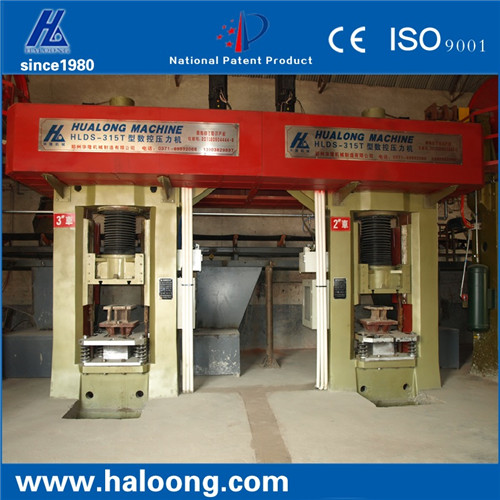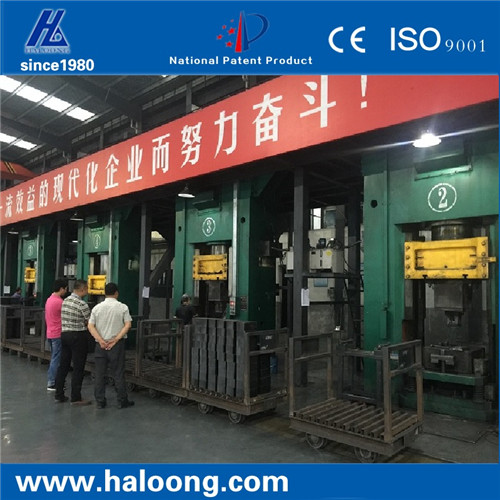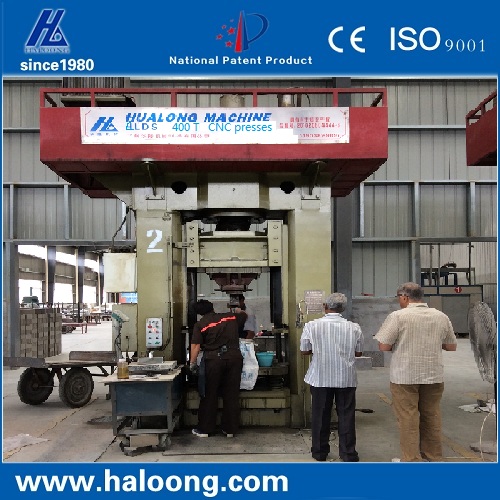Mechanical vs. Hydraulic vs. Servo Presses
Author: haloong Time: 2016-11-29 15:06:20
Which press is right for you?
The answer is… it depends. There are many variables that can affect your decision, but the following rules generally apply:•The traditional mechanical press can achieve the highest production speeds...
•The hydraulic press offers versatility...
•The mechanical servo press offers versatility and higher production speeds...
Traditional Mechanical Press
The traditional mechanical press can achieve the greatest production speeds, especially when running relatively flat parts with simpler, shallower forming requirements. These parts are typically processed from coil stock through a progressive or transfer die. Many automotive, appliance, and hardware parts fall into this category. Characteristics of a traditional mechanical press:

• fixed stroke length (although variable stroke length presses are available from haloong press manufacturers)
• special slide motions (i.e. link motions) are available, specific to a particular press
• variable slide velocity, although slide velocity profile within a single cycle of the press is fixed
• working energy is dependent on flywheel mass and speed
• full press capacity near bottom dead center of stroke • simplicity of set up and operation
• in general, the highest stroking speeds
• high accuracy and repeatability
• relatively low initial cost
Hydraulic Press
The hydraulic press does not generally achieve the high cycling speeds of a similar-sized mechanical press, but it does offer greater versatility with its variable stroke length, die space, and pressure. The hydraulic press is often the best choice when producing parts with deep, complex forms that require a lot of material flow and are not dependent on production speed. Parts such as tanks, cylinders, and bowl shapes, as well as parts that require a “dwell” at the bottom of the stroke (including plastics), are often run on hydraulic presses. Characteristics of a typical hydraulic press:

• variable stroke length
• slide motion and position control throughout the range of the stroke length
• variable slide velocity, even within a single cycle of the press (typically configured as fast approach, slow press, fast return)
• full working energy at any speed
• full press capacity at any point in the stroke
• adjustability of all the above
• in general, slower than a mechanical or servo press
• in general, lower accuracy and repeatability than a mechanical or servo press
• relatively low initial cost
Mechanical Servo Press
The mechanical servo press offers much of the versatility of the hydraulic press, at production speeds often approaching traditional mechanical presses. The stroke, slide motion, slide position, and speed are programmable to allow many different combinations that can work with a wide variety of dies, part types, and production speeds. Characteristics of a mechanical servo press (flywheel, clutch & brake are replaced by high-capacity motors):

• variable stroke profiles
• precise slide motion and position control throughout the range of the stroke length
• variable, precise slide velocity control, even within a single cycle of the press stroke.
• full working energy at any speed
• programmability of all the above
• full press capacity near bottom dead center of stroke
• in general, greater cycle speeds than a hydraulic press, in many cases approaching the speeds of a traditional mechanical press
• high accuracy and repeatability
• relatively high initial cost
Zhengzhou Haloong Machinery Manufacturing Co., Ltd. is specilized in the refractories mechanical equipment,brick press machine,electric automatic press machine,screw pressing machine,cnc punch press ,double disk friction press reform for 35years.
email:haloong@haloong.com
Ph:+008613083696911.
tell:+86-371-60121717
wechat:308484547;
skype: crystalmingming;
QQ:308484547







